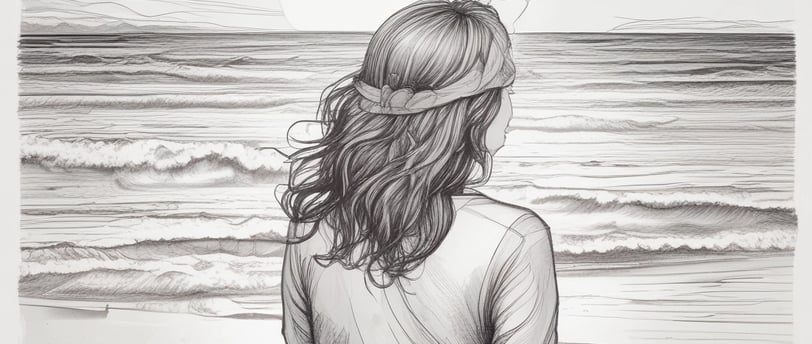Why So Many Women Don’t Realize They Have ADHD
Why So Many Women Don’t Realize They Have ADHD For years, the image of ADHD was simple: a loud, restless boy who can’t sit still in class. That’s why so many women grew up never suspecting it could apply to them. They weren’t disruptive. They didn’t bounce off the walls. They did their homework — even if it meant staying up until 2 a.m., redoing everything, and crying quietly in the bathroom. They passed. They adapted. And because they functioned, no one looked closer. But functioning isn’t thriving. And hiding the symptoms doesn’t make them go away — it just delays the crash.
5/8/20252 min read


Now, more and more women are learning — often much later in life — that what they’ve struggled with for years actually has a name. Often after years of burnout, anxiety, or mysterious “overwhelm” that doctors couldn’t quite explain. For some, the tipping point is motherhood. For others, it’s menopause. For many, it’s simply the accumulation of decades spent running on empty.
We’re good at hiding it — even from ourselves ADHD in women often looks like high-functioning chaos. You’re not falling apart on the outside. You’re juggling. You’re managing. You’re holding it together with grit and coffee and a Google calendar packed tighter than your laundry basket. And in between, you’re quietly wondering why it all feels so hard.
Lazy? No. Tired? Definitely. But it’s the kind of tired that sleep doesn’t fix.
Women who discover their ADHD later in life often realize they’ve been internalizing their struggles for years. If something went wrong, they blamed themselves. If they dropped a ball, they assumed they just weren’t trying hard enough. Over time, this builds a quiet, constant erosion of self-esteem.
Then comes the burnout Years of masking and overcompensating can catch up fast. Burnout isn’t just being tired — it’s hitting a wall, emotionally and physically. It’s staring at your to-do list and feeling nothing. It’s crying over the laundry or zoning out in a meeting because your brain just. can’t. anymore.
Many women don’t recognize what’s really going on until something breaks. A job. A relationship. Their health. Only then do they stumble across a podcast or post that sounds eerily familiar, and the pieces start falling into place.
Realization brings clarity — and grief Finally understanding what’s been going on can be life-changing. There’s relief, of course: a name for the fog, the frenzy, the forgetting. But there’s grief too. Grief for the years spent thinking you were just lazy, moody, or failing. Grief for the energy wasted pretending everything was fine.
And yet — this realization also opens up space. Not just for answers, but for compassion. For seeing that you weren’t broken — you were just wired differently. You were trying to navigate a system that wasn’t designed with your brain in mind.
Knowing this earlier wouldn’t have fixed everything. But it might’ve helped you be a little gentler with yourself. To understand that your struggles weren’t about weakness or laziness, but about misalignment. That you weren’t bad at life — just mismatched with the expectations around you.
This isn’t about regret. It’s about reclaiming your story.
© 2025. All rights reserved.
Join our community of working moms with ADHD
